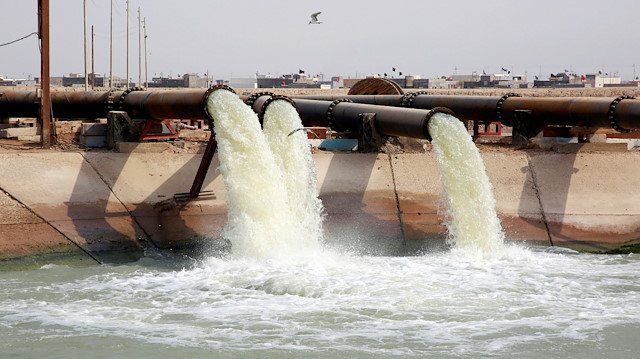
118,000 people in Basra have suffered poisoning due to chronically tainted drinking water, government watchdog says
As many as 118,000 people have suffered temporary poisoning in recent months after drinking tainted water in the southern province of Basra, Iraq’s government-run High Commission for Human Rights (HCHR) announced Wednesday.
In a statement, the HCHR urged Basra’s municipal council to convene to discuss means of resolving the crisis.
It went on to assert that several areas of Basra, especially the Shatt al-Arab and Al-Markaz districts, continued to suffer from tainted drinking water.
The HCHR did not say when exactly the 118,000 poisoning cases had been recorded, but according to local rights groups, water toxicity in the area has risen noticeably since mid-August.
This summer, Iraq’s Water Resources Ministry reported that the percentage of dissolved salts in the Shatt al-Arab waterway -- Basra’s main source of potable water -- had reached dangerously high levels.
Since July, Iraq’s Shia-majority southern and central provinces -- especially Basra -- have been rocked by sporadic demonstrations.
Along with more job opportunities and an end to perceived government corruption, protesters demand improved public utilities, especially water and electricity.
Hello, the comments you share on our site are a valuable resource for other users. Please respect other users and different opinions. Do not use rude, offensive, derogatory, or discriminatory language.
The floor is all yours.









